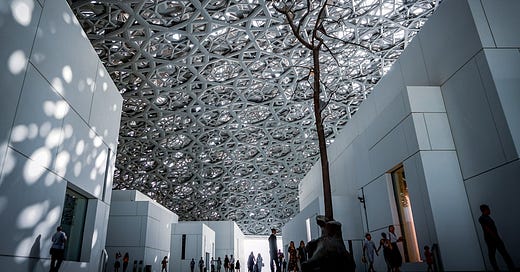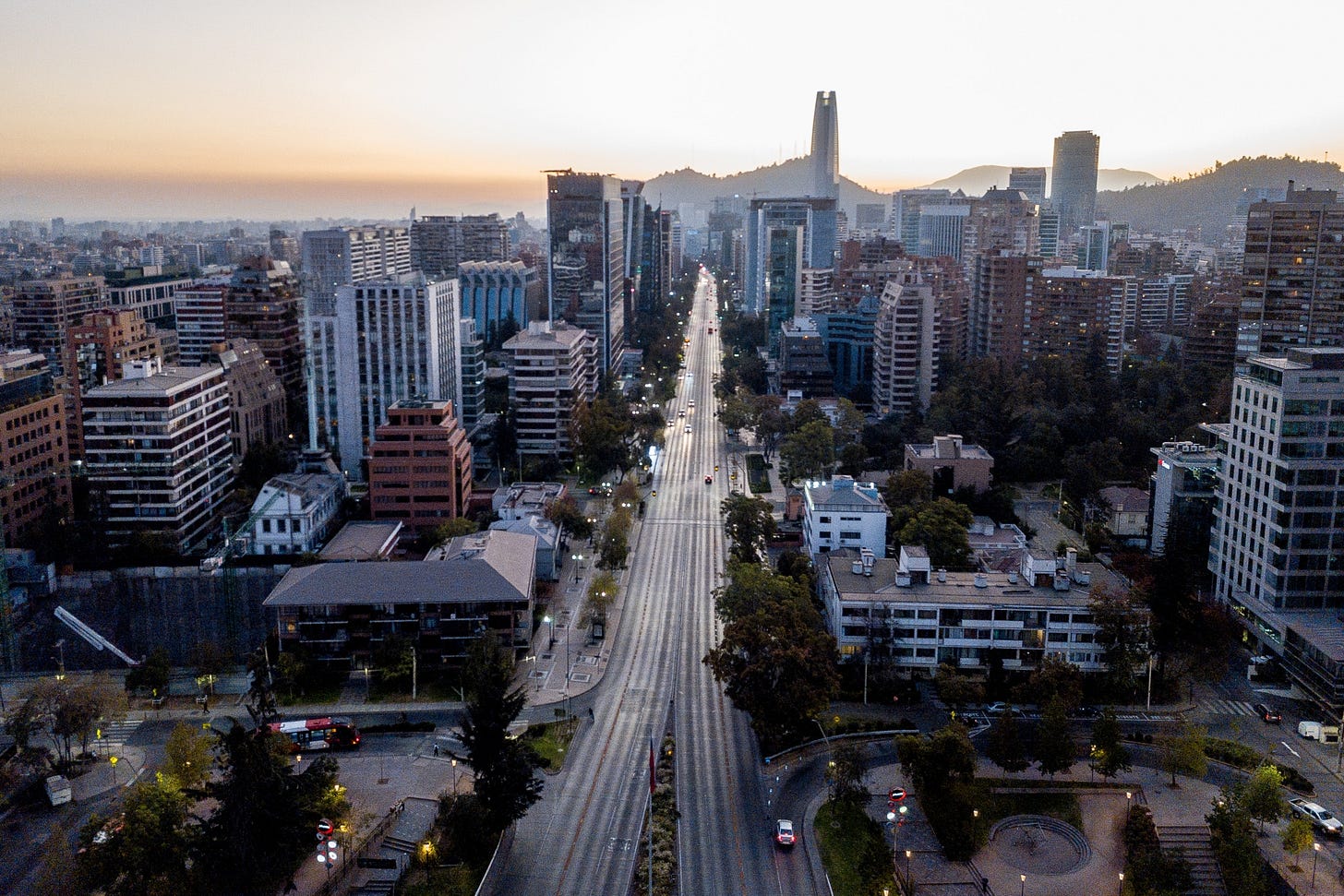Emerging Markets Daily - July 4
OPEC+ Tensions Threaten Oil Deal, Erdogan's Support Base Falters, Afghans Fear US Withdrawal, China's 'Global Energy Internet,' Chile's New Constitution, and EM Scorecard
The Top 5 Emerging Markets Stories from Global Media - July 4
High-Stakes Oil Diplomacy Puts Future of OPEC+ Deal At Risk
Bloomberg
“A high-stakes game of oil diplomacy pits Saudi Arabia against long-time ally Abu Dhabi. And the result of their fight will shape not just the price of oil for the next year, but the future of the global energy industry.”
“The United Arab Emirates blocked on Friday an OPEC+ deal that cartel leaders Russia and Saudi Arabia hashed out to increase output, demanding better terms for itself. After two days of bitter talks, and with the UAE the only holdout, ministers halted negotiations until Monday, leaving markets in limbo as oil continued its inflationary surge above $75 a barrel.”
“Abu Dhabi is forcing its allies into a difficult position: accept its demands, or risk unraveling the OPEC+ alliance. Failure to reach a deal would squeeze an already tight market, potentially sending crude prices sharply higher. But a more dramatic scenario is also in play -- OPEC+ unity may break down entirely, risking a free-for-all that would crash prices in a repeat of the crisis last year.” Javier Blas reports
Turkey’s Erdogan Sees Support Hitting All-Time Low
Financial Times
“Hediye Bas blames the dams, highways and network of tunnels cutting through the wooded Ikizdere Valley in north-east Turkey for choking water supplies and stunting her crops. Now work on a planned quarry is proving a breaking point and eroding her support for President Recep Tayyip Erdogan.”
“Bas and other villagers in Erdogan’s ancestral province of Rize are trying to stop the excavation of 20m tonnes of stone for a new port 40km away on the Black Sea coast. Dynamite has already blasted off chunks of the mountain for an access road, briefly turning the stream where Bas’ family fishes an unnatural turquoise.”
“…Erdogan ‘probably thought we would support any project he undertakes here because he wins almost all of our votes. But I won’t vote for him any more’, said Bas. ‘No one from the village finds work in these projects, they just deprive us of the valley we rely on for income.’”
“The rare protest in one of the president’s strongholds is emblematic of broader discontent with his economic stewardship that polls suggest is hitting support for the ruling Justice and Development party (AKP) across the country. Inflation has been stuck in double digits for most of the past four years and unemployment is about 14 per cent.”
“The $200m port is part of $325bn of infrastructure investment planned in Turkey over the next decade. Erdogan has pinned his economic hopes on the vast construction spree, including a $15bn shipping canal that will render half of Istanbul an island.” Ayla Jean Yackley reports.
'What was the Point?' Afghans Rue Decades of War as U.S. Quits Bagram
Reuters
“As American troops left their main military base in Afghanistan on Friday, marking a symbolic end to the longest war in U.S. history, locals living in the shadow of the base and in nearby Kabul were left ruing the past and bracing for what comes next.”
“Violence has been raging throughout Afghanistan in the weeks since President Joe Biden announced troops would withdraw unconditionally by Sept. 11.”
“With peace talks in Qatar stuttering, and roughly a quarter of the country's districts having fallen to the Taliban in recent weeks according to one study, many are concerned that chaos looms.” Reuters reports
Is China’s ‘Global Energy Internet’ Plan Growing in Power?
South China Morning Post
Ever since President Xi Jinping pitched the idea of a ‘global energy internet’ to the United Nations six years ago, China has been trying to persuade the world to build the high-voltage highways that would form its backbone. That plan to wrap the planet in a web of intercontinental, made-in-Beijing power lines has gone pretty much nowhere. Yet the fortunes of so-called supergrids appear to be turning, if not on quite the spectacular, Bond-villain scale Xi first envisaged.”
“…Yet it is not China that is driving renewed interest in cables that can power consumers in one country with electricity generated hundreds, even thousands of miles away in another. Instead, carbon-neutrality commitments, technological advances and improved cost incentives are accelerating a broad expansion of renewable power generation.”
“…Persuading countries to rely on each other to keep the lights on is tough, but the universal, yet intermittent nature of solar and wind energy also makes it inevitable, according to Rifkin. ‘This isn’t the geopolitics of fossil fuels,’ owned by some and bought by others, he says. ‘It is biosphere politics, based on geography. Wind and sun force sharing.’” SCMP / Bloomberg report
Work starts on Chile's First Post-Dictatorship Constitution
France24
“Chile officially starts writing a new constitution Sunday to replace the one it inherited from the era of dictator Augusto Pinochet and is widely blamed for deep social inequalities that gave rise to deadly protests in 2019.”
“The country's biggest protests in 30 years of democracy won Chileans a referendum last October in which a majority voted for a new constitution to be drawn up by a body of elected members.”
“This 155-member body, elected in May and called a ‘constitutional convention,’ will on Sunday officially start its work of crafting a new Magna Carta for a new Chile.”
“It is a representative collection of Chileans -- lawyers, teachers, a housewife, scientists, social workers, vets, writers, journalists, actors and doctors -- many of whom had themselves partaken in the protests. The youngest is 21.” France24 reports
What We’re Also Reading…
Africa’s Last Absolute Monarchy Teeters Amid Protests Against King’s Lavish Lifestyle
The Wall Street Journal
“A week of nationwide protests has left dozens of people dead in the tiny nation of Eswatini, raising the prospect that Africa’s last absolute monarchy could fall.”
“…Whether the protests succeed or fail in ending the 35-year-rule of King Mswati III, whose lavish lifestyle has long angered many of his impoverished subjects, is being closely watched across the continent, where a clutch of aging autocrats have held power by violently suppressing protest for decades. Across Africa, entrenched older leaders are grappling with increasingly restless youthful populations demanding improved opportunities even as the coronavirus has devastated regional economies.”
“Eswatini, about three-quarters the size of New Hampshire, was known as Swaziland until 2018, when the king unilaterally changed the country’s name in his 50th birthday speech. An estimated 200,000 of the country’s population of 1.2 million are living with HIV/AIDS, according to the United Nations. Political parties have been banned since 1973, but opposition groups long seeking democratic reform point to indiscriminate and extravagant spending by the royal family as infrastructure in the country crumbles. Pandemic-related lockdown measures have magnified these grievances, hitting an already weak economy and fueling unrest.” Alexandra Wexler reports
Emerging Markets Scorecard
In case you missed it, check out our Emerging Markets First Half 2021 Scorecard.





